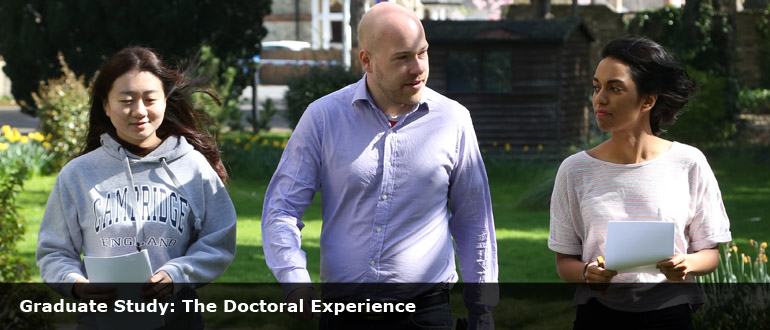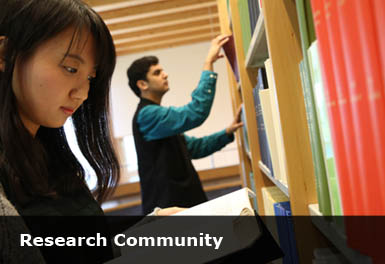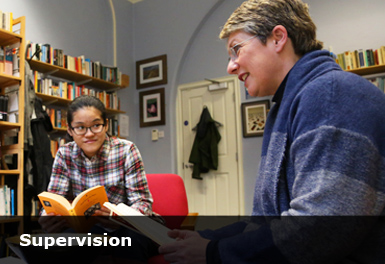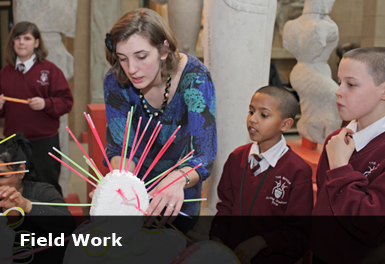

The Faculty Research Community
Our doctoral students are part of a vibrant multi-disciplinary research culture. You can see what some of our current doctoral students are researching here. You can also learn more about the doctoral student experience on the blog run by the Faculty of Education Research Students' Association (FERSA).
The Faculty hosts a number of lectures, conferences and seminars which are open to all members of the Faculty. Every year research students organise and host the two-day Kaleidoscope conference. Delegates from the UK and all over the world are invited to communicate their research through presentations, workshops and posters.
The Faculty Library houses a collection of over 55,000 items and is staffed by a friendly team skilled in sourcing materials both digitally and in print. Students also benefit from outstanding IT and audio-visual facilities and resources.

Supervision
One of the great strengths of studying at Cambridge is the individual support you will receive from an expert in your field.
Supervisors meet with students regularly to discuss progress and will offer feedback on work at appropriate times, directing them to information and resources and helping them to take advantage of the excellent opportunities available.
Doctoral students are also allocated an advisor, who will offer additional, but less regular, support and with whom they can discuss their progress.

Field Work
Field work is a crucial and exciting element of the PhD or EdD. After registration, most full-time students spend 2-3 terms collecting data (equivalently longer if part-time), normally in the second year full-time or third year part-time.
Students' research has taken them all around the World -including Canada, Chile, China, Ghana, Hong Kong, India, Kazakhstan, Mexico, Pakistan, Saudi Arabia, the UK and the US. Fieldwork is challenging and rewarding and the skills you develop will be useful beyond your PhD or EdD.

Graduate Development and Transferable Skills
Students are encouraged to attend the Faculty's community-building Pathways to Research programme in the first year (first two years part-time).
Doctoral students also benefit from a number of academic and professional development opportunities within the wider University, for example research methods training from Cambridge Research Methods. CaRM courses cover qualitative and quantitative research methods, from basic training to advanced statistical analysis.
The Researcher Development Programme includes seminars and workshops on a range of topics, such as writing skills, effective undergraduate supervision, research integrity and skills analysis.
Unibuddy Ambassadors
If you have questions about what it's like to study here as student, chat to one of our student ambassadors or check out their blogs and videos for a real insight into life at Cambridge.
